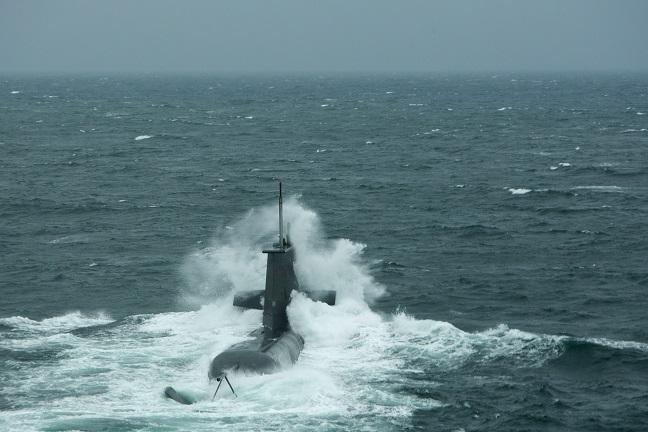 Lost amid ‘canoe-gate’ last week was an interview with the Minister for Defence during which he made an interesting comment:
Lost amid ‘canoe-gate’ last week was an interview with the Minister for Defence during which he made an interesting comment:
… the Labor Party when in power for six years had ASPI do a run over* of what the cost of these mythical 12 submarines was going to be and ASPI said it was about $36 billion. Now those were the numbers that ASPI said the cost of the program was running out, Labor themselves had costed the program at $41 billion …
In that short passage there’s an important revelation—the costing the previous government was using as its working figure for the Future Submarine program was $5 billion more than ASPI’s now widely-quoted $36 billion figure.
That’s significant because recently there’s been quite a bit of criticism of that 2009 estimate. For example, it came under fire during the debate that kicked off the recent Submarine Institute of Australia conference. It got a similar serve during the South Australian government’s Defence Industry Summit (PDF) back in October and again at a recent Senate Committee hearing into naval shipbuilding (PDF). The gist of the criticism is that the estimate Sean Costello and I published in our 2009 ASPI paper How to buy a submarine was naïve, ridiculously high and has skewed the debate about the future submarine to the detriment of Australia’s military capability.
I won’t defend the estimate as an object of precision. Far from it—it wasn’t the result of the detailed systems-engineering assessment of technological maturity, industry capacity and user requirements you’d need to have confidence. It was, as stated, a simple extrapolation of historical data on submarine programs provided to ASPI by DMO.
That’s a method that the US Congressional Budget Office observed tends to give a better estimate than those project offices typically produce in the early stages of a new development—and it’s how I produced a 2008 estimate of the cost of the F-35 Joint Strike Fighter (PDF, figure 2). Again a simple calculation based on extrapolation from a smallish number of data points, it’s looking pretty good today. My estimated mature flyaway cost for the air force version of the F-35 was US$80 million, or US$99.5 million in 2019 money. In comparison, this year’s US Air Force budget papers give a 2019 flyaway cost of $97.1 million. So the historical data got within 3% of predicting the actual figure at a time when the F-35 program estimates were 30% optimistic. And it works for aircraft carriers too.
That our estimate got the media’s attention wasn’t that surprising. After all, $36 billion is a lot of money—almost a dozen major metropolitan hospitals or six Snowy Mountain hydro schemes. That’s newsworthy in its own right. More surprising, perhaps, was its longevity. At the risk of revealing too much think-tank tradecraft (especially to our valued Strategist readers on Russell Hill), I’ll admit that we thought it’d have a short shelf-life. When we put the number in a draft sent to Defence, we thought they’d challenge it and suggest a lower one for us.
That didn’t happen. In fact, it was another of the numbers in that paper—ironically one we were pretty happy with because it was based on reporting in Jane’s and other usually reliable defence publications—that got a serve from Defence. We said that 12 off-the-shelf German submarines might cost $9 billion. FSM project lead Admiral Moffitt begged to differ when he said ‘Andrew Davies in ASPI talks of $9 billion for off-the-shelf submarines. That’s nonsense’.
Clearly the larger number lived on because no one had a better one at the time. In fact, given the generally unfavourable reception in the Australian polity of the $36 billion estimate (see this video example), it’s not surprising that no one from Defence wanted to stick up a mast and admit that their number was bigger still.
In 2012, the Kokoda Foundation had its own go at costing the future submarine (PDF). Their number of around $1.2 billion to $1.6 billion per boat was also based on historical data, though the calculation lacks adequate transparency—the report doesn’t label the data points or provide a scale on the vertical axis of the graph (figure 7). But given that each Collins cost around $1.5 billion in 2011 dollars, this would see the replacement boats costing about the same. That’s an almost impossible outcome if we’re after the larger size and significantly better performance the 2009 White Paper called for.
Performance is the key to understanding the likely cost. As I explained in a later paper intended to put the $36 billion figure in context, if we aim for a more conservative performance, it’ll cost less and be less risky to deliver. And based on statements from Defence, that’s where we’ve arrived today. So unless the ghost of the high performance future submarine rises, we shouldn’t see the $36 billion figure surface again—but I’ll bet we do.
*For the record, ASPI wasn’t tasked by government to do that estimate. Like much of our work, we initiated it ourselves.
Andrew Davies is senior analyst for defence capability and director of research at ASPI. Image courtesy of Department of Defence.